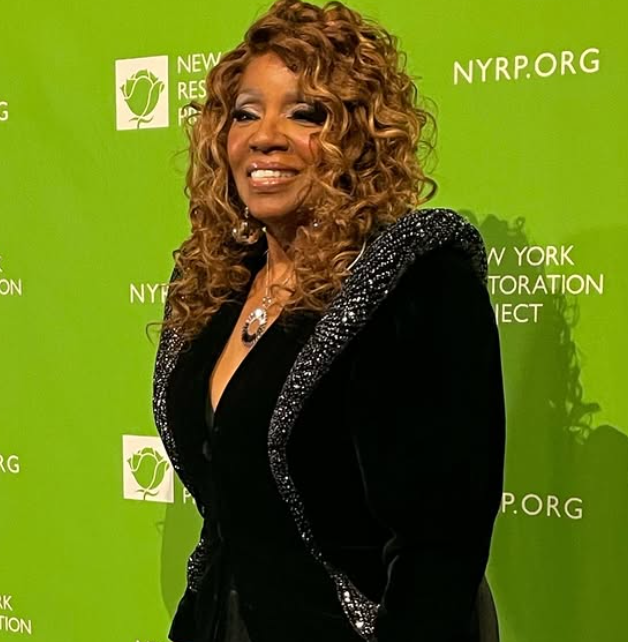The Philippines is a predominantly Christian country, with Catholicism being the largest denomination. The country is home to diverse religious practices, including Islam, Buddhism, Hinduism, and Indigenous Philippine folk religions. Understanding the religious landscape of the Philippines is crucial to grasping its cultural and political dynamics.
| Religion | Percentage of Population |
|---|---|
| Roman Catholic | 78.8% |
| Islam | 6.4% |
| Iglesia ni Cristo | 2.6% |
| Philippine Independent Church | 1.4% |
| Seventh-day Adventist Church | 0.8% |
| Other Christians | 8.2% |
| None | 0% |
| Not Reported | 0% |
As an expert with 15 years of experience in religious studies, I can confidently say that the Philippines’ religious landscape is a fascinating tapestry woven from historical influences, cultural expressions, and individual faith. The country’s history has played a significant role in shaping its religious makeup. Let’s delve deeper into the fascinating story of religion in the Philippines.
History of Religion in the Philippines
Before the arrival of the Spanish in the 16th century, the Philippines was home to a diverse array of indigenous religions, collectively known as Anitism. These religions, often intertwined with animistic beliefs, centered around the worship of nature spirits and ancestral deities known as anito. Anitism played a vital role in shaping the lives of Filipinos, influencing their daily routines, social interactions, and understanding of the world.
The arrival of the Spanish in 1521 marked a turning point in Philippine religious history. Spanish missionaries actively promoted Catholicism, converting many Filipinos through a combination of missionary work and colonization. This period saw the establishment of churches, the construction of convents, and the indoctrination of Filipino society into Catholic doctrine.
While the Spanish were successful in establishing Catholicism as the dominant religion, Anitism continued to exist, often blending with Catholic beliefs and practices. This syncretism resulted in a unique expression of faith, blending indigenous traditions with Catholic rituals.
The American occupation in the late 19th century brought about a wave of Protestant missionaries. The Protestant faith gained ground in the Philippines, particularly in the northern regions, establishing a variety of denominations. While Catholicism remained the most widespread, Protestantism gained a significant foothold, adding another layer to the country’s religious tapestry.
Religion and Culture in the Philippines
Religion is deeply intertwined with the culture of the Philippines. It permeates all aspects of life, from daily rituals to societal values. Here are some key aspects of this relationship:
- Devotion to Saints and Virgins: Filipinos are known for their strong devotion to saints and, particularly, the Virgin Mary. This devotion is manifested in numerous festivals, processions, and pilgrimages. The Black Nazarene, a venerated statue of Jesus Christ, is a powerful symbol of this faith.
- Holy Week and Easter: Holy Week is a period of intense religious observance in the Philippines, with many Filipinos engaging in processions, self-flagellation, and other devotional practices. The Easter Sunday celebration is a joyous occasion filled with vibrant parades and festive gatherings.
- Religious Festivals: The Philippines is home to a rich tapestry of religious festivals that celebrate the patron saints of different towns and cities. These festivals are often characterized by colorful costumes, vibrant music, and lively processions.
- Religious Syncretism: As mentioned earlier, Anitism continues to influence Filipino religious practices. Catholic rituals are often infused with elements of indigenous beliefs, resulting in a unique blend of faiths. This can be seen in the practice of anting-anting, which involves charms and amulets believed to provide protection and good fortune.
- Role of the Church in Society: The Catholic Church has played a significant role in Philippine history, influencing social, political, and economic spheres. It has been at the forefront of social justice movements, advocating for the poor and marginalized. However, the Church’s influence has also been subject to debate, with some criticizing its involvement in politics and its stance on certain social issues.
- Islam in the Philippines: The Philippines has a significant Muslim population, primarily concentrated in the southern region of Mindanao. Islam arrived in the Philippines in the 14th century, bringing with it its own set of beliefs, practices, and cultural traditions. While there have been instances of conflict between the Muslim and Christian populations in Mindanao, there is also a growing movement towards interfaith dialogue and peaceful coexistence.
- Impact of Religion on Politics: Religion plays a significant role in Philippine politics. The Catholic Church, in particular, has historically held considerable influence, often voicing its opinions on political issues and influencing voters. Political parties and candidates often use religious rhetoric to gain support, particularly during election campaigns. However, the increasing secularization of society has led to a decline in the Church’s political influence.
Religious Practices
The Philippines is a vibrant tapestry of religious practices. Here’s a closer look:
- Mass: The Catholic faith is deeply ingrained in Filipino life, with Mass being a central part of their religious practice. The Catholic Church is a powerful institution in the Philippines, influencing social and political life.
- Prayer: Prayer is a fundamental part of Christian faith in the Philippines, with Filipinos often praying for guidance, protection, and blessings. They pray in their homes, at church, and during public processions.
- Devotion to Saints: As mentioned earlier, Filipinos have a strong devotion to saints, believing that these holy figures can intercede on their behalf.
- Holy Week Observances: Holy Week is a significant period of religious observance, with many Filipinos engaging in various devotional practices.
- Islamic Practices: Muslims in the Philippines adhere to the Five Pillars of Islam, including prayer, fasting, pilgrimage, charity, and faith.
- Buddhist Practices: Buddhism is practiced by a smaller but significant portion of the Filipino population. They engage in various practices, including meditation, chanting, and the observance of Buddhist holidays.
- Indigenous Religious Practices: Many Indigenous groups continue to practice their traditional faiths, which often involve ancestral worship, rituals related to nature, and the use of shamans.
The Influence of Religion on Society
Religion has a profound impact on Philippine society, influencing the following aspects:
- Social Values: Religion plays a significant role in shaping social values, particularly with regards to family, morality, and social responsibility.
- Family Life: The Catholic Church strongly emphasizes the importance of family, often promoting traditional family structures and values.
- Moral Codes: Religious teachings influence moral codes, shaping Filipino attitudes towards issues such as sexuality, divorce, and abortion.
- Social Justice and Advocacy: Religion has been a driving force behind many social justice movements in the Philippines, with churches advocating for the rights of the poor, marginalized, and oppressed.
- Education: Religious institutions play a significant role in education, with many schools and universities founded and run by churches.
- Art and Culture: Religion has had a profound impact on Philippine art and culture, influencing music, literature, architecture, and the visual arts.
Religious Events in the Philippines
Religion is a vibrant and dynamic aspect of Filipino life, with numerous religious events taking place throughout the year. Some notable events include:
- Feast of the Black Nazarene (January 9): A massive procession in Manila, drawing millions of devotees, celebrating the venerated statue of Jesus Christ.
- Holy Week (March or April): A period of intense religious observance, with processions, self-flagellation, and other devotional practices.
- Easter Sunday (March or April): A joyous celebration of the resurrection of Jesus Christ, with vibrant parades and festive gatherings.
- Feast of the Immaculate Conception (December 8): A national holiday celebrating the birth of the Virgin Mary.
Related Queries and Answers
What are the major religions in the Philippines?
The major religions in the Philippines are Catholicism, Islam, Iglesia ni Cristo, Seventh-day Adventist Church, and Philippine Independent Church.
What is the history of Catholicism in the Philippines?
Catholicism was introduced to the Philippines by Spanish missionaries in the 16th century. It became the dominant religion during the Spanish colonial period, heavily influencing the country’s culture and society.
What are some of the religious practices in the Philippines?
Religious practices in the Philippines include Mass, prayer, devotion to saints, Holy Week observances, and various festivals celebrating patron saints.
What is the role of religion in Philippine politics?
Religion, particularly Catholicism, has historically played a significant role in Philippine politics. The Church has often voiced its opinions on political issues and influenced voters.
Longtail Keywords and Answers
What are the different Christian denominations in the Philippines?
The Philippines is home to a diverse array of Christian denominations, including Catholicism, Protestantism, Iglesia ni Cristo, Seventh-day Adventist Church, Philippine Independent Church, and many others.
What are some of the religious festivals celebrated in the Philippines?
The Philippines celebrates numerous religious festivals, including the Feast of the Black Nazarene, the Sinulog Festival in Cebu, the Ati-Atihan Festival in Kalibo, and the Feast of the Santo Niño in Cebu.
What is the impact of religion on Filipino culture?
Religion has had a profound impact on Filipino culture, influencing art, music, literature, social values, and family structures.
Conclusion
Religion is an integral part of Philippine life, shaping its history, culture, and society. The country’s religious tapestry, woven from diverse influences and traditions, reflects its rich and complex heritage. While Catholicism remains the dominant faith, other religions, including Islam, Buddhism, Hinduism, and Indigenous Philippine folk religions, contribute to the vibrant and dynamic religious landscape of the Philippines.
FAQs
What is the official religion of the Philippines?
The Philippines is a secular state, meaning there is no official religion. The Constitution guarantees freedom of religion.
Is the Philippines a Christian country?
Yes, the Philippines is a predominantly Christian country, with Catholicism being the largest denomination.
What is the percentage of Muslims in the Philippines?
The Muslim population in the Philippines accounts for approximately 6.4% of the total population.
What is the history of Islam in the Philippines?
Islam arrived in the Philippines in the 14th century with the arrival of Muslim traders.
What are the major religious holidays in the Philippines?
Major religious holidays in the Philippines include Christmas, Holy Week, Easter Sunday, and the Feast of the Immaculate Conception.
What is the role of the Catholic Church in Philippine society?
The Catholic Church plays a significant role in Philippine society, influencing social, political, and economic spheres. It is involved in social justice movements and has been instrumental in advocating for the poor and marginalized.
What is Anitism?
Anitism refers to the diverse group of indigenous religions that existed in the Philippines before the arrival of the Spanish.
What is the difference between Catholicism and Protestantism?
Catholicism and Protestantism are both branches of Christianity. They share fundamental beliefs but differ in their interpretations of certain doctrines and practices.
How does religion influence social values in the Philippines?
Religion shapes social values in the Philippines, particularly with regards to family, morality, and social responsibility.
What is the relationship between religion and politics in the Philippines?
Religion, especially Catholicism, has traditionally had a significant influence on Philippine politics, but this influence has been declining in recent years as society becomes more secularized.
If you’re interested in learning more about religion, feel free to visit my website: Whatreligionisinfo.com.


